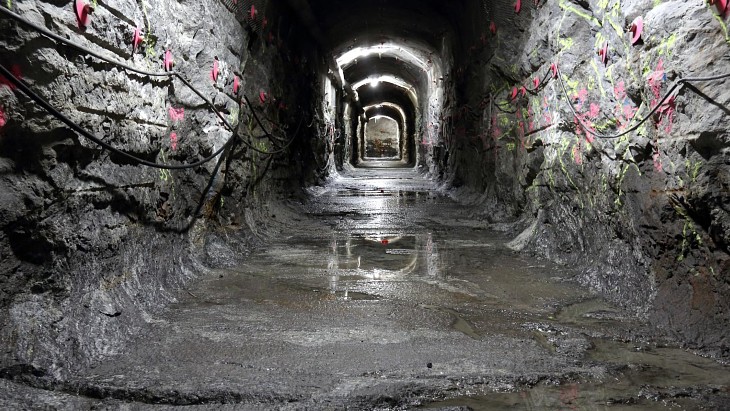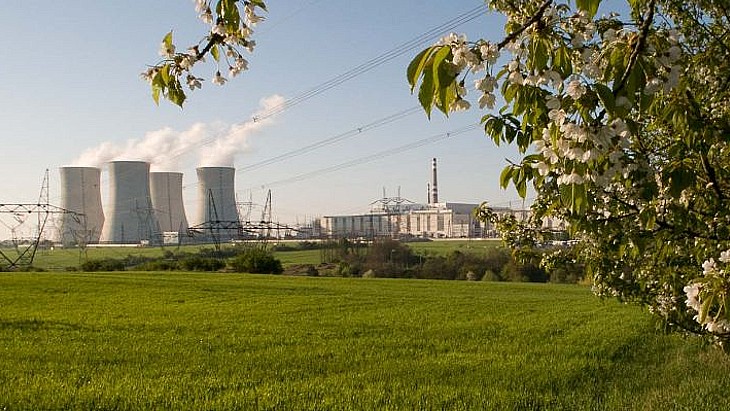Most radioactive waste arising from nuclear applications consists of disused sealed radioactive sources (DSRSs). Radioactive sources are used in different devices in medical, industrial and agricultural facilities.
According to the IAEA, for countries with limited amounts of radioactive waste, disposal could theoretically involve safe, secure and permanent placement inside boreholes, deep underground. The borehole disposal system is a detailed, engineering level system which enables the safe, secure and permanent disposal of all DSRSs categories (1-5) in specially constructed boreholes tens of metres into the earth.
"The borehole disposal is a fit-for-purpose and cost-effective solution in general, because it is specifically designed for disposal of DSRSs and is economically affordable in comparison with the other disposal pathways, such as geological disposal," said Nora Zakaria, Head of the IAEA Waste Technology Section.
In Malaysia, the preparatory work for the start of the borehole facility construction is now in its final stages and it is expected that the facility - which takes up to six weeks to build - will be operational soon. Following the country's request, the IAEA has been assisting the authorities and the national stakeholders, including the Malaysia Nuclear Agency (MNA) and the Atomic Energy Licensing Board (AELB), in developing guidance documents; designing and procuring borehole disposal equipment and tools; carrying out technical testing and facilitating capacity building, and more.
IAEA expert missions to Malaysia have focused on testing and providing guidance on the commissioning of the disposal operations and equipment, as well as on the oversight of the borehole facility construction. The IAEA is also providing technical assistance and advice throughout the facility construction and through capacity building to develop the expertise required for its operation.
"The disposal of stored DSRSs into boreholes reduces safety and security risks and enables their efficient management," said Mohd Zaidi Ibrahim, Manager at the Waste Technology Development Centre of MNA's Waste and Environment Technology Division. "The implementation of the borehole disposal method allows Malaysia to dispose the majority of category 3-5 DSRSs in its stockpile, especially the sources which were used prior to the establishment of appropriate regulatory requirements and are still in storage, that are usually associated with management concerns."
"The IAEA systematically assists countries to identify and implement optimal solutions for the safe and secure use, storage, and now permanent disposal of their radioactive sources. We hope that Malaysia's success will encourage other countries to learn from the best practices in relation to borehole disposal of radioactive sources."
"The borehole system allows for a permanent disposition, rather than storage, solution," said Heather Looney, Head of the Nuclear Security of Materials and Facilities Section at the IAEA's Division of Nuclear Security. "One of the most important benefits expected from this project is the overall enhancement of nuclear security and radiation safety at the national and regional level, as well as globally.
Ghanaian project
Ghana is also at an advanced stage of implementing its borehole project, with significant progress having been made in the regulatory authorisation processes. The borehole facility construction is expected to begin as soon as the licensing review process is completed.
"We are implementing the borehole disposal system as a final solution for disused sealed radioactive sources generated in the country," said Eric Tetteh Glover, Head of the Radioactive Waste Management Centre of the Radiation Protection Institute, Ghana Atomic Energy Commission. "The successful implementation of the borehole disposal system will provide the country with a licensed disposal facility, and at the same time will further enhance the human and technical capabilities required for the country's nuclear power programme."
The IAEA said the completion of borehole disposal facilities in Ghana and Malaysia aims to significantly reduce the risks related to the disused radioactive sources. "The impact will go beyond the borders of these countries, as in the long-term this will be a model for other countries to follow. It is a major milestone for safety and security of disused sources," said Anna Clark, Head of the IAEA of the Waste and Environmental Safety Section.
In September last year, the IAEA launched a new peer review service in an effort to support countries faced with limited resources and capacities for the management of DSRSs. The Disused Sealed Radioactive Sources Technical Centre (DSRS TeC) peer review aims to increase and enlarge the accessible pool of resources and support for sustainable management of DSRSs.

.jpg)





_53514_33880.jpg)






